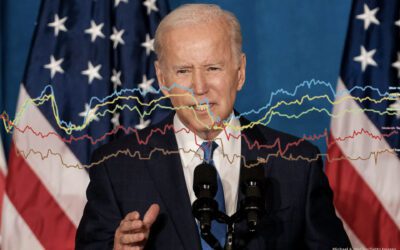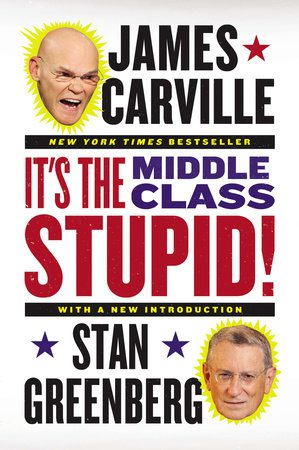The most recent survey and focus groups by Greenberg Quinlan Rosner for Democracy Corps reveal deep opposition to the Ryan budget– and its potential to damage Mitt Romney’s candidacy if he embraces it in the coming campaign.[1] At the outset, the Ryan budget (described in Ryan’s actual language) barely garners majority support. And voters raise serious doubts when they hear about proposed cuts—particularly to Medicare, education, and children of the working poor.
President Obama’s lead against Romney more than doubles when the election is framed as a choice between the two candidates’ positions on the Ryan budget– particularly its impact on the most vulnerable. The President makes significant gains among key groups, including independents and voters in the Rising American Electorate (the unmarried women, youth, and minority voters who drove Obama to victory in 2008). This is an important new finding; highlighting the Ryan budget’s impact on the most vulnerable seriously weakens Romney.
Key Findings:
• The Ryan budget is a big target. Even described using Ryan’s own words, support for the budget barely gets majority support.
• Mitt Romney’s embrace of the Ryan budget erodes his support in a close race. Romney’s full-fledged support of the Ryan budget opens him up to attacks on big, decisive issues.
• Voters respond equally to three big critiques of the Ryan budget.Voters reject Ryan’s plan to allow the refundable child tax credit to expire, which would push the families of 2 million children back into poverty. Second, voters are deeply concerned about Ryan’s plan for Medicare and health care spending for seniors. Finally, voters strongly disapprove of cuts to education spending. These three facts about the Ryan budget are the most concerning to voters, especially unmarried women and Hispanic voters.
• Concern for the most vulnerable has a ballot box impact. After hearing balanced facts about the Ryan budget and messages on both sides, we asked voters to weigh the two Presidential candidates based on their positions on the Ryan budget and its impact on the most vulnerable. Not only does focusing on the most vulnerable not hurt the President, it helps him – Obama’s margin widens to 9 points, with his vote climbing above 50 percent.
• Obama’s base consolidates against the Ryan budget. The Rising American Electorate (youth, minorities and unmarried women) who swept Obama into office move sharply against Romney in this survey, especially unmarried women, who shift a net 10 points.
• Hispanics value education above all. While the expiration of the child tax credit is unnerving to this key bloc, Hispanic voters are most concerned by the budget’s proposal to cut funding for education.
• Voters take a moral approach to evaluating the proposed cuts in the Ryan budget. The most compelling arguments in both focus groups and on this survey were those framed by moral concerns for the most vulnerable. This poses a real opportunity for Democrats to expose the Ryan budget in a way that is compelling for independents and undecided voters.
• The upcoming debate about whether to extend the refundable child tax credit is an opportunity for those who support it. This memo outlines the strongest attacks against allowing the benefit to expire and the strongest messages to support it.
Survey Design
This survey utilizes a unique experimental design, which allows us to analyze the impact of different messages and information.
After hearing a description of the Ryan budget using the Congressman’s own words, half of the respondents received five facts about general cuts in the Ryan plan and one fact about cuts that will affect the most vulnerable. The other half received an even split of facts about general cuts and cuts affecting the most vulnerable. Respondents then heard a series of arguments for and against the budget.
At the conclusion of the experiment, all respondents were asked a presidential vote question framed as a debate scenario between Barack Obama and Mitt Romney solely on the Ryan budget. Half of respondents heard the set up framed as a principled choice on what the budget would do the most vulnerable:
“In his concluding statement, Mitt Romney says that he supports the Ryan budget because it reflects his values. President Obama says that he opposes the Ryan budget, particularly because of what it would do to the most vulnerable.”
The other half of respondents heard the question without the line about what the budget cuts would do to the most vulnerable.

Ryan budget cuts very concerning to voters
The Ryan budget begins on shaky ground. For the last two years, we have measured voters’ real and deep concerns about the deficit. But as Republicans in Washington have taken their self-proclaimed mandate to advance an increasingly extreme agenda, voters have pulled back sharply; this was not what they voted for in November 2010. When given a description of what the budget does – in Ryan’s own words – barely a majority (52 percent) support it.
It is obvious that voters have a clear sense of what should and should not be sacrificed in order to reduce the deficit. When faced with facts about what the Ryan budget will do, voters prioritize three concerns above the rest – privatizing Medicare, cutting education funding, and letting the refundable child tax credit expire.

This top tier of concerns is especially potent among key demographic groups. Allowing “the child tax credit to expire for many working families, pushing the families of 2 million children back into poverty” is the chief concern for the Rising American Electorate (45 percent say this is one of their top two concerns.) And among Hispanics, cutting funding for education is the leading concern – 43 percent list it in their top two.
Romney is severely weakened by his support for the Ryan plan. After hearing a list of facts about the budget, we read respondents Mitt Romney’s endorsement:

Among Hispanics, the shift against Romney was dramatic. More than half (53 percent) of Hispanics say Romney’s endorsement of the budget makes them less likely to vote for him; only 32 percent say they are more likely to vote for Romney.
Strongest developed attacks parallel worries about Ryan budget
Some of the most concerning facts about the budget – privatizing Medicare and expiring the Refundable Child Tax Credit– are also the strongest thematic message attacks against the budget, raising serious doubts for more than 60 percent of all voters.

These top messages combine several powerful frameworks. They all focus on the budget’s impact on the most vulnerable and set up a clear contrast between the choices available in November. These messages raise very serious doubts about Mitt Romney for one-third of all voters and serious doubts for nearly two thirds.
Real impact on the ballot
The President starts out with a 3-point margin against Mitt Romney, 49 percent to 46 percent. When asked to judge the two candidates in a very narrow way—Romney’s support for the Ryan budget because it reflects his values and Obama’s opposition because of what it would do to the most vulnerable—the vote shifts. Obama wins a majority of voters (51 percent) and his margin more than doubles to 8 points (51 to 43 percent.) This is a significant finding.

The Ryan budget’s impact on the most vulnerable is powerful among key swing voters, including unmarried women, who shifted a net 10 points toward Obama, the Rising American Electorate (net 3-point shift), and independents (net 9-point shift). Even conservatives were swayed, shifting a net 13 points toward Obama.
Among those who heard an even split of facts about the Ryan budget – including ones about cuts to programs aimed to help mostly lower and working class families – the shift is even more pronounced. With this group of voters, Obama leads Romney by 9 points, 52 to 43 percent, the largest margin of any of the groups in our experiment. It’s clear that focusing on what the Ryan budget does to the most vulnerable Americans can pay dividends for Obama.

We conducted a counter-test wherein half of the sample was told only that the President opposed the Ryan budget, but not because of what it would do to the most vulnerable. This control group was asked to cast their votes based solely on the two candidates’ positions on the Ryan budget. This result was much different; in this test, Romney lost only one point, with the margin remaining statistically unchanged (49 percent to 45 percent).
This finding represents a new and powerful recommendation for progressives to address big budget choices in terms of what is right and wrong and marginalizing what Republicans are seeking to do. For voters, the budget is not merely about economics, it is about doing what is right. As one Ohio voter told us, “I feel like what [Romney] wants to pass is morally wrong.”
“It’s just wrong, in my opinion. Lower income Americans, to me, it’s like trying to squeeze blood from a turnip, is that a saying? They’re doing what they can, they’re not gonna make more money. I think of Robin Hood, where the king is stealing from the poor to make more money.” – Columbus woman
“I feel like he [Romney] doesn’t really understand poor people.” – Columbus woman
Right and wrong – the best advocacy messages for programs that benefit the working poor
The Ryan budget is weak – and attacks against it potent – because voters believe budget cuts affecting the most vulnerable are just wrong. Voters are most compelled by moral arguments against the budget – they believe that the budget should not be balanced on the backs of the most vulnerable and that cuts affecting seniors and the working poor are simply immoral. In our focus groups among swing voters in Columbus, Ohio, participants articulated this case with strong conviction, asserting that they are unwilling to sacrifice struggling families in order to reduce the deficit.
To be sure, voters make judgments about the budget based on what is good for the economy and best for themselves personally. But more importantly, above all else, these swing voters in Ohio drew clear lines based on what is “right” and “wrong.” These definitions are powerful and immovable; they have the capacity to turn voters sharply and steadfastly against the Ryan budget and against Mitt Romney for endorsing it.

By far, the strongest messages all emphasize the basic understanding that we live in a moral country. These messages confront basic core principles—that we need to live in a moral country, that we should not punish children who are poor through no fault of their own, and that it is in our American character to help those who are less fortunate. Two-thirds of all voters found these messages compelling and more than a third said they were very convincing.
Our message framed solely by the moral principle that we should not cut programs that benefit those in need is the most powerful; 71 percent found it convincing and 44 percent said it was very convincing. Remarkably, this message outperforms the best Republican message – attacking those “who don’t pay any taxes at all” – by 15 points.

These messages have a powerful impact among critical swing voters. Among those who are either undecided or leaning toward one candidate on the congressional ballot, 72 percent find the moral argument convincing, and almost half (46 percent) say it is very convincing. More than two-thirds of independents say the “Moral” (67 percent) and “Kids” messages (68 percent) are convincing.
These messages are also the strongest among the Rising American Electorate (minorities, youth, and unmarried women) whose energy and engagement will be critical this fall. Almost three-quarters of these voters find the “Moral” and “Kids” messages convincing. The messages have almost identical affect among suburban voters. These messages are even strong among the white non-college voters—more than two-thirds say all three of these messages are convincing.
These messages cut across the board and stake out a strong position on the programs that matter most and have the ability to define what we believe about ourselves as Americans. They also score higher than the best counter-arguments against funding programs that benefit the working poor—that they increase our debt burden, that extending these programs was meant to be a temporary stimulus measure, and that beneficiaries don’t pay taxes.

Voters concerned about allowing the Refundable Child Tax Credit to expire
Voters are very concerned about the plan to allow the Refundable Child Tax Credit to expire when they learn about it: more than half say it raises serious doubts in their minds.
Because most voters conflate the child tax credit (which all taxpayers with children are eligible to receive) with the Refundable Child Tax Credit (which benefits the working poor), respondents were informed that the benefit “provides up to a 1,000 dollar tax credit for each child of the working poor, those whose incomes average around 21,000 dollars a year. A family has to be working in order to receive it. If the value of a family’s credit exceeds the amount of tax they owe, they may receive part or all of the difference in the form of a refund check.”
The best case against allowing the credit to expire articulates that doing so would push the families of 2 million children back into poverty. This argument is more powerful than the argument that it would push the families of 10 million children deeper into poverty.
This confirms our findings from the focus groups. “Pushing families back” suggests that these are aspirational and responsible families who are trying to work hard; pushing them “back” into poverty not only has an impact on these families in particular, but also suggests something dark about Americans’ ability to achieve the American Dream. As focus group participants noted:
“I hate to see people who have been struggling to get out of poverty knocked back down.” –Columbus woman
“People who are on that brink, they struggle hard and they work really hard to get out of that mess and to push them back into it isn’t fair. Why even work.” –Columbus woman
“You don’t want to push them back. They may be just starting to come up.” –Columbus woman
Statistically, all of the messages tested equally well. More than half are convinced by the right-wrong argument in favor of the credit, which says that if the credit is not extended, “millions of working families with children will see a tax increase of up to 1,400 dollars. That’s just wrong and is not what we stand for as Americans.” This confirms our findings from the rest of the survey and is in line with what swing voters in Columbus articulated.
The argument that “the deficit is important, but it is more important to prevent a 20 percent increase in the poverty rate among babies and toddlers” is particularly powerful among key swing voters. It is the strongest message for independent voters, white non-college voters, and those who are either undecided or who are leaning toward one candidate on the congressional ballot.


[1] This memo is based on a national survey of 1000 likely 2012 voters conducted June 23-28, 2012 by Greenberg Quinlan Rosner Research for Democracy Corps. Unless otherwise noted, margin of error= +/- 3.1 percentage points at 95% confidence. This memo is also based on a unique oversample of 200 self-identified Hispanic voters. These interviews were conducted in both English and Spanish language, depending on the preference of the respondent. Lastly, this memo is based on two focus groups conducted among college and non-college swing women in Columbus, Ohio on June 4, 2012.




